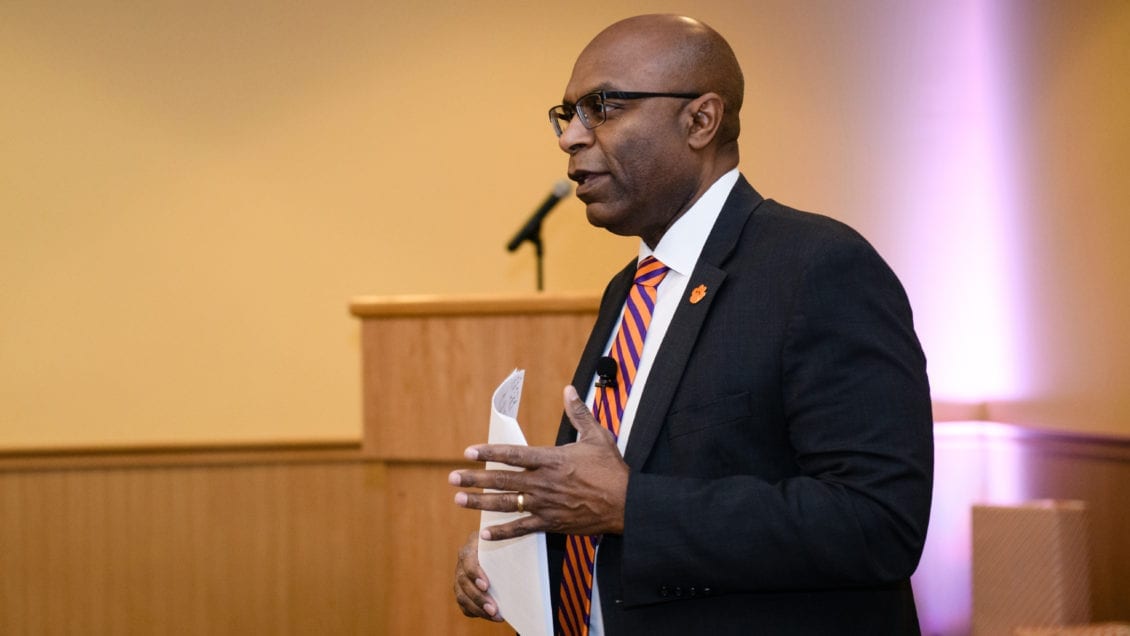The Division of Student Affairs concluded the second year of an exploratory series known as Experience: IMPACT on Thursday, April 15. The series aims to take a deeper dive into work supporting the division’s four core themes: health, safety and wellness; student learning; inclusive excellence; and staff experience. Thursday’s virtual presentation explored the idea of staff experience.
Five successive speakers — including a special guest from the College of Education — presented for about 10 minutes apiece. Each presenter spoke on a recent project or concept, focusing on challenges, action items and impactful outcomes.
“As we finish our second year of this series, Experience: IMPACT has been an engaging way to address both professional development opportunities for our staff and promoting and recognizing the quality of work being done by all of our colleagues,” said Kristin Walker-Donnelly, Student Affairs director of assessment.
—
Kryssa Cooper serves as the director of corporate and community engagement for Student Affairs. A big part of her role includes working as a liaison to the various boards and committees who work closely with the division.
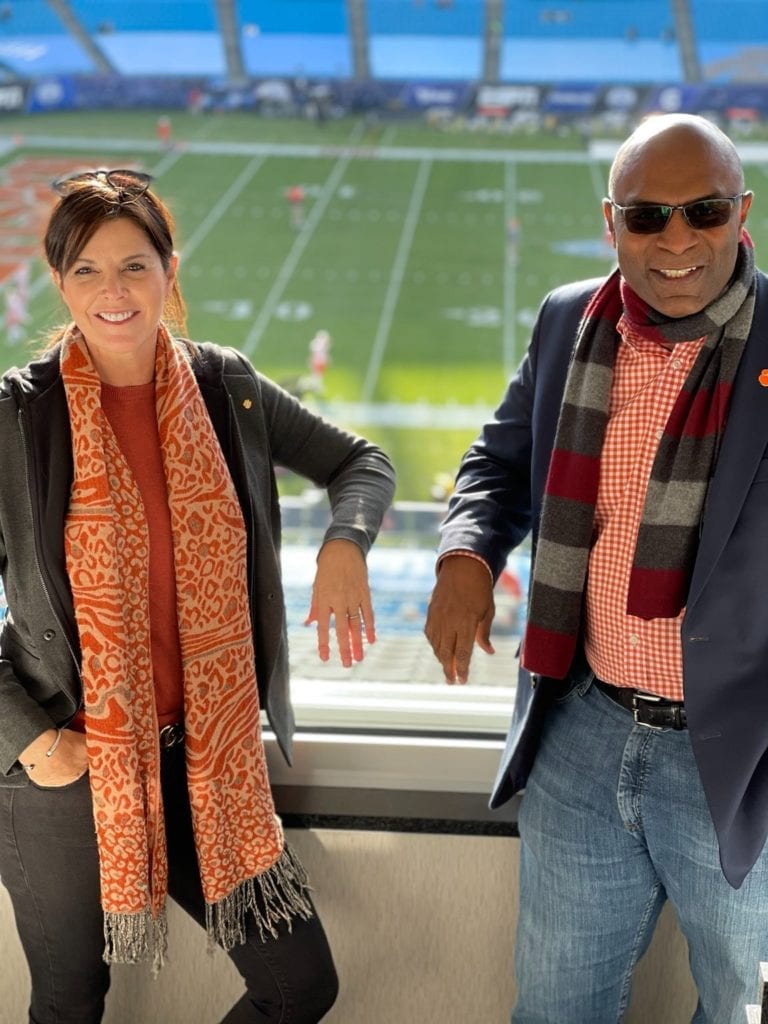
In her presentation, she provided the makeup and purpose of each board or committee and outlined the types of professional development opportunities that exist for Student Affairs staff related to each group.
Earlier in the week, the Board of Trustees (BOT) Student Affairs committee convened for its quarterly meeting and staff members Josh Barnes and Neil Burton were among those presenting. They combined to provide an overview of how the division supports the transitioning of students in, on and out of the university. Each BOT meeting provides an opportunity for different staff to present in front of the trustees.
Cooper spoke at length about the division’s predominant external board, the Vice President’s Executive Council. Chaired by Dave Snow, the group serves as an advising board and is very active in its support of the division.
“They are heavily invested in Clemson,” Cooper said. “They are not necessarily all alumni, but most have had at least one child attend Clemson. They advise the vice president on Student Affairs initiatives and are a great group for our staff to be in front of.”
The other focus of the presentation was the Clemson Family Advisory Board (CFAB), a group of parent volunteers who serve as ambassadors for the division through events such as Orientation, Move-In and Family Weekend.
—
Chris Miller was named interim vice president in Student Affairs in October 2019. At the time, the results of a recent staff experience survey were at the forefront of his mind. One of the areas he addressed immediately was enhancing internal communication. Survey respondents indicated a desire for a higher level of information, more frequent communication and connectedness to division leadership.
Philip Sikes serves as the communications director for Student Affairs. During his presentation Thursday, he outlined the four goals he initially set out to accomplish back in 2017-18, his first academic year in the role. The fourth goal was improving internal communication between leadership and personnel within Student Affairs, which was comprised of more than 600 employees at the time.
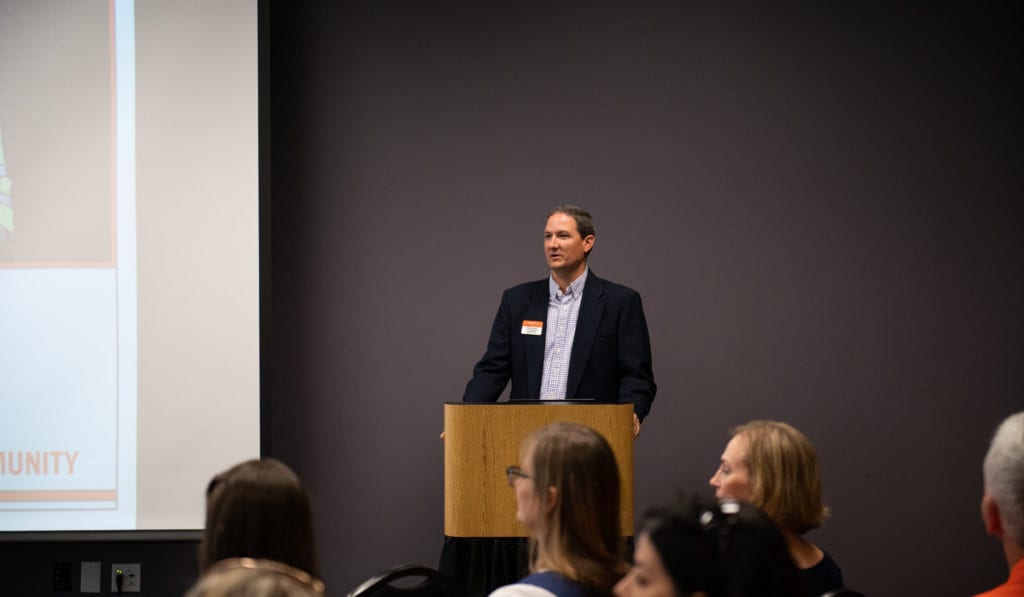
Sikes provided an update on internal communication enhancements since the day Miller was appointed as interim vice president. On average, he has spearheaded an electronic divisionwide message every 12.5 calendar days, ranging in content from upcoming calendar events to personnel updates to important collaborations and extensive staff newsletters.
“By far, we’re sending out more impactful communications to staff than we ever have and ensuring we have a frequent presence,” he said, while indicating a recent inventory revealed very healthy open and engagement rates among Student Affairs staff.
Another way the division has enhanced communication internally has been through intentionality in its meetings. With the move to modified operations due to COVID-19, Sikes quickly adjusted to virtual all-staff settings — which has produced outstanding attendance and robust programming. Each monthly divisionwide meeting begins with a report from the vice president, followed by relevant topics which have exposed staff to key campus partnerships and sharing of more widespread institutional information.
“It hasn’t been perfect, but I’m rarely satisfied with my work and am always trying to get better,” Sikes said. “But I’m proud of the direction we’re headed and the improvements that have been made.”
—
Last year, Student Affairs implemented foundational changes to better support the staff experience. Lisa Bona, the division’s chief business officer, updated a presentation from April 2020 in which she outlined the initial brainstorming work done in the identification of guiding principles.
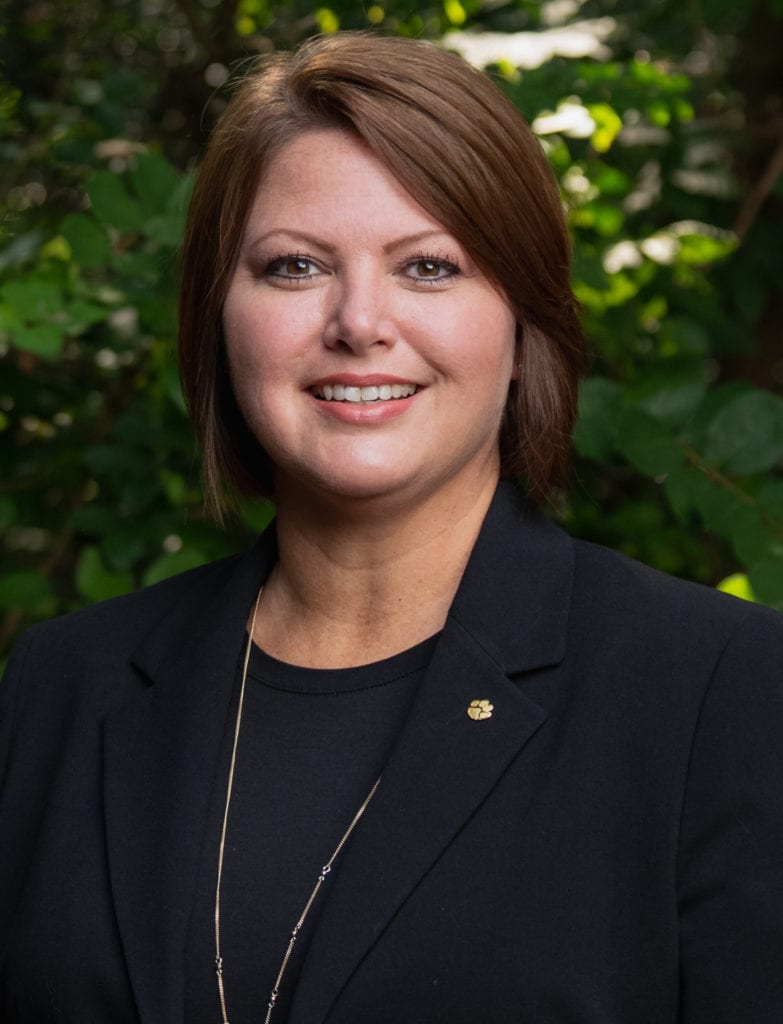
“With the reorganization in Fall 2019 and feedback provided from the staff experience survey, we had the opportunity to focus on our division’s core — which was tightening our priorities, realigning our resources to enhance our culture to close the gaps we were seeing articulated through the survey,” Bona said.
Ultimately, leadership settled on four guiding principles — diversity of thought; intentionality with excellence; accountability; and communication. These principles provide clarity, structure and consistency in how the division executes its work.
“It’s our belief the sustainable success of our division hinges on the operational principles, as well as key performance drivers,” Bona said. “By having the right people focused on the right work, we will achieve our intended outcomes.”
—
Kristin Walker-Donnelly presented during the session on the upcoming staff experience survey, which will be distributed Monday, April 19 and available to Student Affairs personnel through Friday, May 7. The survey covers the same topics as the one in 2019 that yielded invaluable feedback.
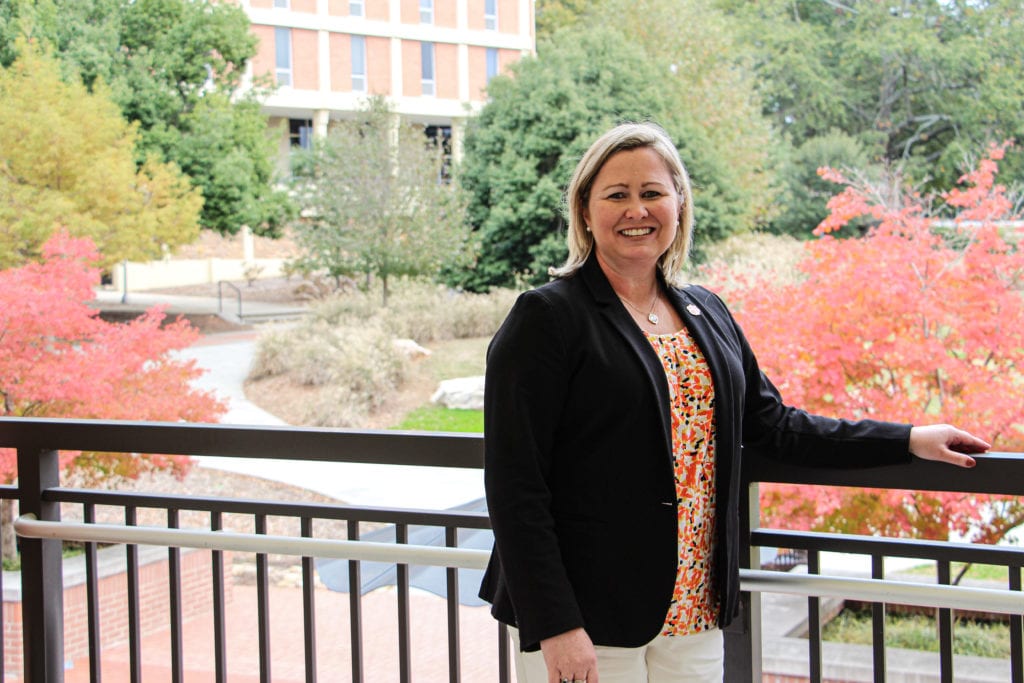
When Walker-Donnelly initially launched the 2019 survey, the goal was to identify division and department-level strengths and opportunities and to articulate outcomes and areas of focus. She received about a 40-percent response rate when it was administered in late summer.
Since the initial survey was administered, the division has taken several important steps. It has increased professional development opportunities, enhanced communication strategies and developed guiding principles and reimagined onboarding resources.
She also led the execution of a business continuity survey in the midst of the COVID-19 pandemic in April 2020 which afforded another opportunity to understand staff experience in relation to roles, support and communication.
Walker-Donnelly is excited for the launch of the 2021 survey to see how division perception has progressed over the past two years.
“Hopefully, our staff will see we believe their experience within our division matters,” she said. “We thank everyone in advance for participating in the 2021 survey and for helping make an impact on the staff experience in the Division of Student Affairs.”
—
Each session of Experience: IMPACT includes a guest presenter from outside of the division. Walker-Donnelly didn’t have to look far, however, for Thursday’s special guest.
Dr. Tony Cawthon heads up the Counselor Education – Student Affairs master’s program at Clemson as part of the College of Education. He presented on how the program comprised of 80 students is equipping and empowering tomorrow’s practitioners for careers in the field of student affairs.
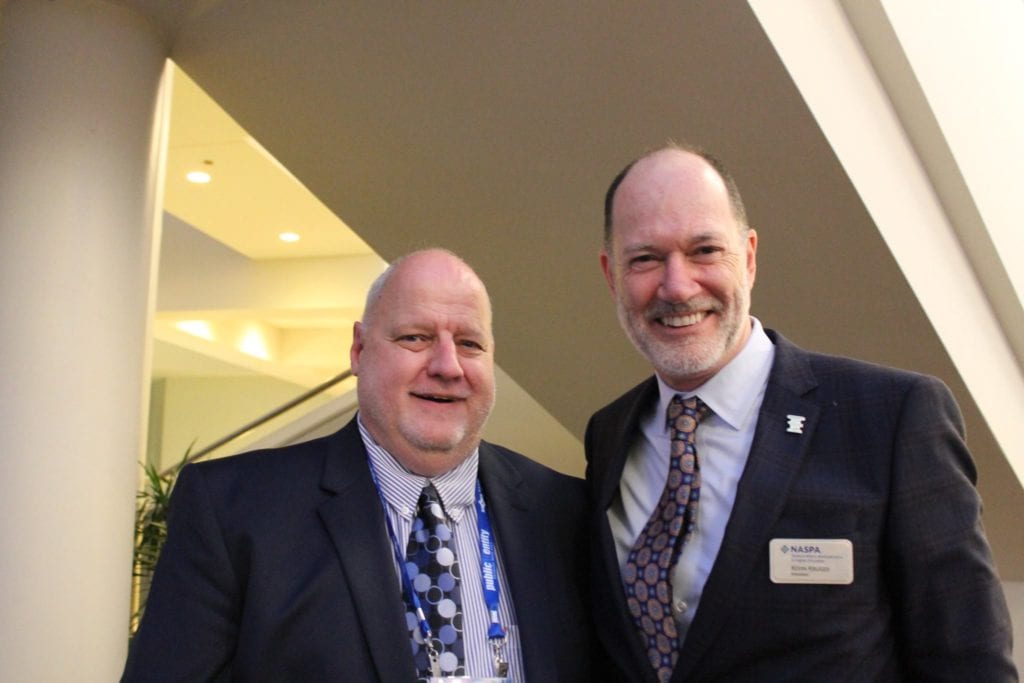
“I feel like I’m back with my people,” Cawthon joked. “Having started my career at Clemson as the director of residence life, I always hold a dear place in my heart for the work Student Affairs does in helping our students succeed.”
The program entails 42 credit hours and nearly all of its students work full-time or as graduate assistants — many within Clemson’s Division of Student Affairs. Its curriculum addresses knowledge and skill development in social justice, advising and supporting, and student development.
One challenge Cawthon and faculty colleagues have faced in the program has been in the final examination process, which has changed “four or five” times over the past five years. The final exam process consists of a short oral presentation where a student articulates program outcomes and competencies they have learned, while also providing a supporting artifact to illustrate a tie-in to curriculum.
The end goal is to develop practitioners who are informed, active, introspective and collaborative.
“The opportunities Student Affairs provides our students … you’re our lab,” Cawthon told staff on the call. “Chemistry students have experimental labs. Our students’ lab is your world in Student Affairs. They get to practice what they learn in class in a real-time environment.”

